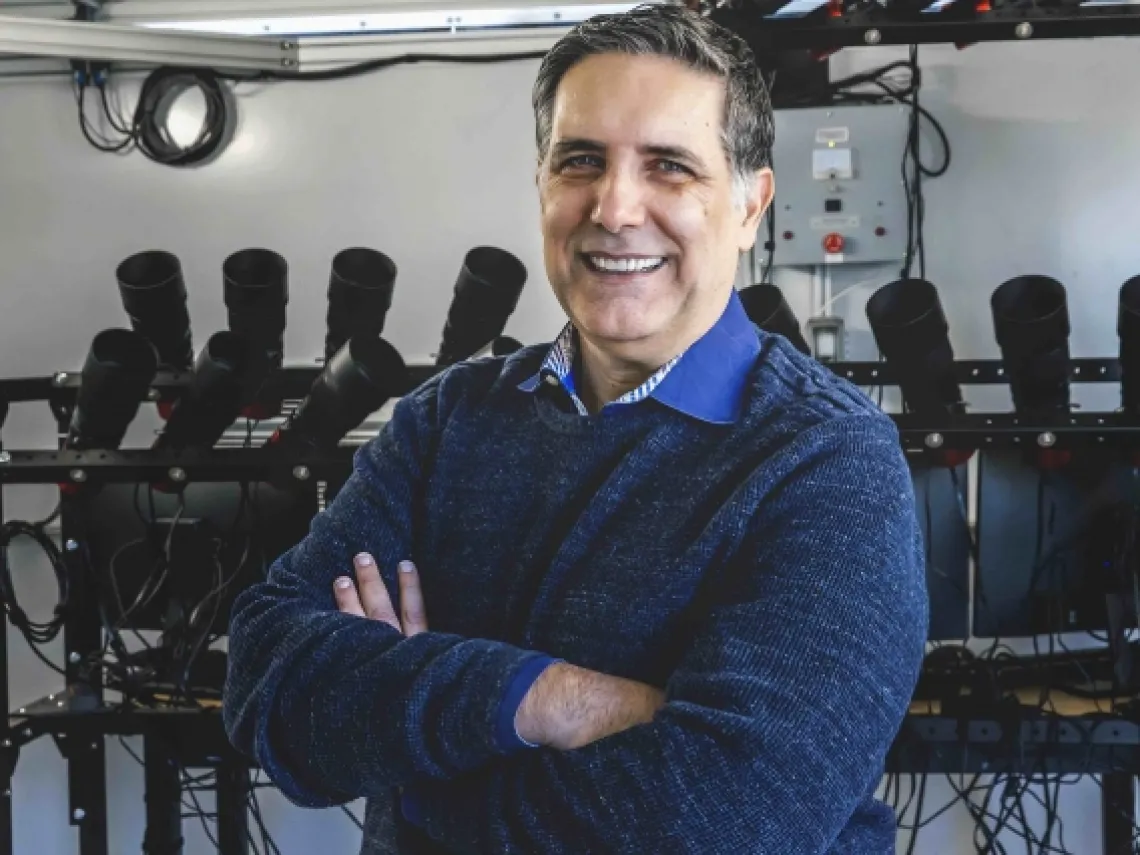UArizona’s Space4 Center Joins International Collaboration Focused on AI and Space Safety

University of Arizona researchers are part of a new international collaboration with the UK Space Agency to apply artificial intelligence to space safety and security.
The University’s Space4 Center will partner with scientists at Strathclyde University in Scotland, the Massachusetts Institute of Technology, and the Canadian University of Waterloo and Columbiad Launch Services Inc., to provide a technical roadmap for implementing new AI technologies for space traffic management.
“Space is becoming congested with more and more satellites in orbit, and they need to be tracked,” said systems and industrial engineering professor Roberto Furfaro, the Arizona lead on the project and deputy director of the Space4 Center. “AI can handle the large amount of data generated to provide enhanced decision support for managing the complexity of operations in space.”
Of the nearly 26,000 artificial objects tracked by the US Space Surveillance Network, more than 5,400 are active satellites. Thousands more likely will be launched in the next decade as megaconstellations like Starlink expand, presenting challenges to satellite safety and national security.
“New, emerging AI technologies haven’t been exploited for space safety and security,” Furfaro said. “Our goal is to identify technologies from the AI domain that are the most promising for identifying, detecting and characterizing space objects and understanding their behavior.”
The team will be led by professor Massimiliano Vasile, director of the Aerospace Centre of Excellence, Strathclyde Space Institute, and has four months to provide the technical roadmap.
Professor Vishnu Reddy, director of the Space4 Center, said the research goal aligns with the center’s mission to develop and deploy research and education solutions that ensure that space remains safe, secure and sustainable.
“We are excited to be selected for such an international partnership, which will enable the foundation of a virtual institute focused on AI and safety for space situational awareness,” Furfaro said.
The project is part of the first phase of the UK Space Agency’s £20 million International Bilateral Fund investments, designed to help UK organizations link up with the US, Canada, Australia, Japan, India, Singapore, South Africa and others to form collaborations that will progress space research and catalyze investment in new technologies.

